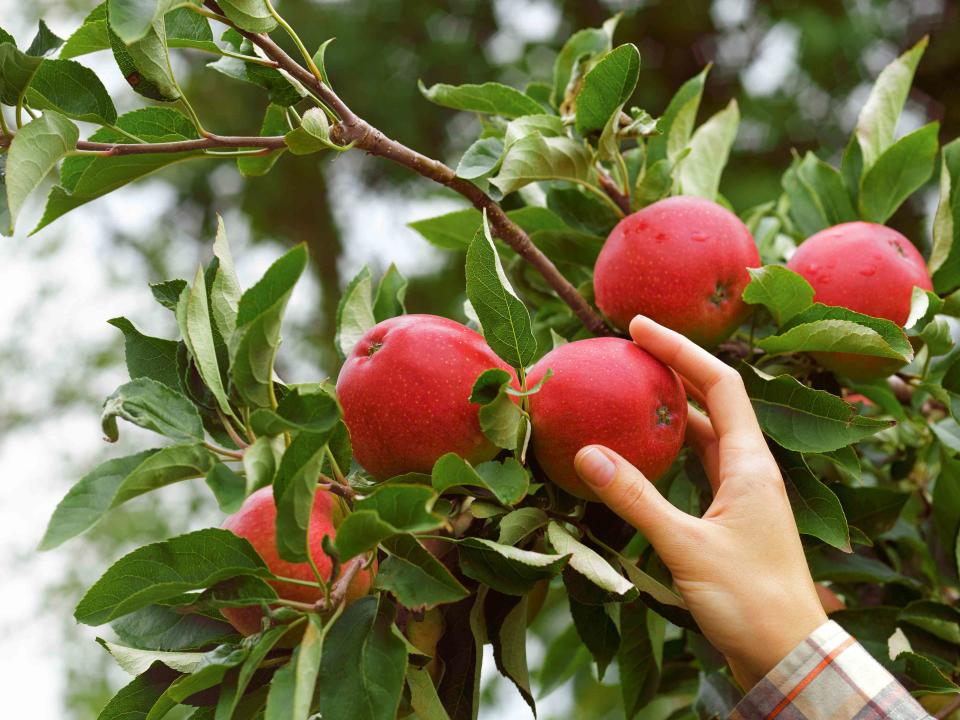Experts Say This Season’s Apples Are the Best in Years
It’s apple baking season, but these beauties are just as good for snacking.

Peter Dazeley/Getty Images
Some years, you may notice that the fruit and vegetables you buy at the grocery store are more or less flavorful or bigger or smaller than usual. This past year, we saw gigantic berries due to particularly wet growing seasons and a smaller supply of sweet Georgia peaches. Happily, we’ve got good news about this year’s crop of apples.
This fall, you may have noticed that your apples are particularly juicy and flavorful. If that’s the case for you, you may have had apples grown in Washington, which had excellent growing conditions this year, resulting in huge quantities of quality apples.
According to Brianna Shales, Marketing Director at Stemilt (a farm that grows, packs, and ships apples, pears, cherries, and more), the success has much to do with this year’s weather. “Weather starts playing an important role for apples in the spring as the fruit blooms. This year, it was warmer than average during bloom. The warmth made for a faster bloom period, yet provide warm days and good flying weather for pollinators (bees) to pollinate the fruit.”
Shales said that after that warm spring came a mild summer free of rain and hail. The result? A harvest of clean, blemish-free fruit with “great eating flavors.”
What Growing Conditions Make a Great-Tasting Apple?
If you’re wondering what “great eating flavors” mean, some of it comes down to personal preference. You may prefer a sweet apple over a tart apple (or the opposite), but in any case, you want an apple that’s juicy and crisp to bite into with a pronounced flavor, be it tart or sweet. According to the Shales, Stemilt has seen “higher than normal Brix (the fancy term for sugars) and great pressures on these apples, which helps provide that crispness attribute that consumers love.”
Of course, just because growing conditions have been stellar in one part of the country doesn’t mean that’s the case everywhere. Factors such as too much heat or lack of sun can stress trees and stunt fruit growth. An unexpected frost can affect the flavor of the fruit. In the Northeast this year, a particularly wet and humid summer caused an uptick in fruit tree diseases more commonly seen in Southern states. Shales said, “The nature of fresh fruits and vegetables is that we never know what Mother Nature is going to throw at us when it comes to weather so we can certainly sympathize with growers of other crops.
Read the original article on All Recipes.


